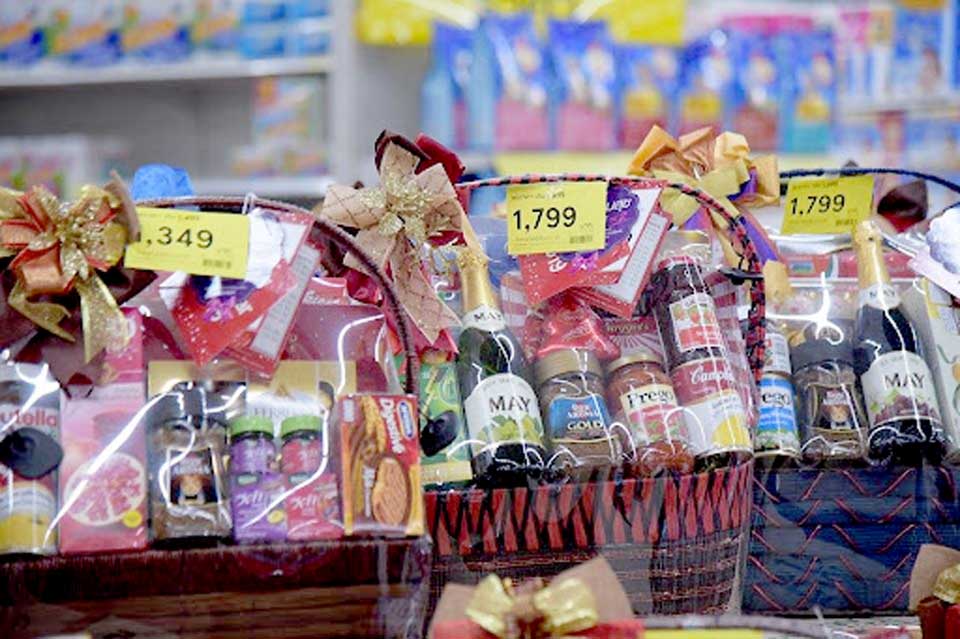
News Year’s Day is fast approaching and people are now busy shopping for gifts to present to others at the turn of the year. The ever-popular New Year’s gift baskets sold at numerous outlets are now being closely inspected by authorities, who intend to deter price gouging and the sale of defective items.
Mrs. Malika Boonmeetrakool Mahasook, an advisor to the minister of commerce, said Minister of Commerce Jurin Laksanawisit has ordered the Department of Internal Trade and provincial commerce offices to closely inspect the sales of New Year’s gift baskets. To prevent opportunistic price raises, the agencies were told to carry out inspections before, during and after New Year’s Day and to focus on stores that see high traffic, such as those at bus stations, train stations, airports, and major tourism sites.
Department stores, superstores, supermarkets, and retailers are being asked to display a list of all items inside a gift basket along with the weight or amount contained within each item. The price of the basket or the gifts container itself and decorative materials must also be specified, so consumers may use them as a basis for decision-making. Sellers are also being told not to put defective items or items with less than 6 months to go before expiry into the gift baskets. They must also accept returns in cases of damaged items.
People who find baskets sold at inappropriately prices or a mismatch between the displayed price and actual price may report to the Department of Internal Trade’s 24-hour hotline number 1569. Commerce Ministry officials will be dispatched to investigate each complaint and will proceed in accordance with the law if wrongdoing is found.
Failure to display the price of items entails a maximum fine of 10,000 baht. Inappropriately high pricing of products, stockpiling, and refusal to sell goods are punishable by a maximum prison sentence of 7 years, a maximum fine of 140,000 baht, or a combination of both. (NNT)
 |
 |
 |





